I broke my ankle tripping on a pothole and the Council told me 'that's life'
and live on Freeview channel 276
A woman who was taken to hospital in an ambulance after tripping on a pothole in Preston says she was told “that’s life” after alerting the Council.
Rebecca Salisbury suffered a nasty dislocation to her ankle when she tripped and fell on the pothole in Seed Street in January.
Advertisement
Hide AdAdvertisement
Hide Ad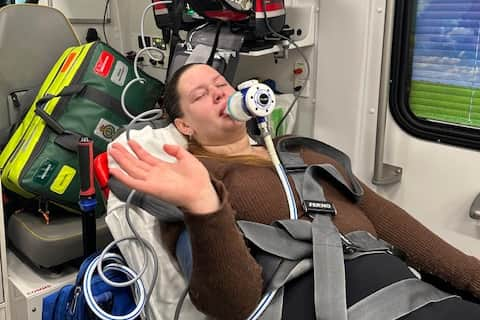

The post-grad student was on her way to UCLan when she lost her footing on the broken road surface and crashed to the ground in agony.
“I was off work for four weeks and I’m now on the list for surgical intervention,” said Rebecca. “I submitted a claim to Lancashire County Council and was horrified by their response.
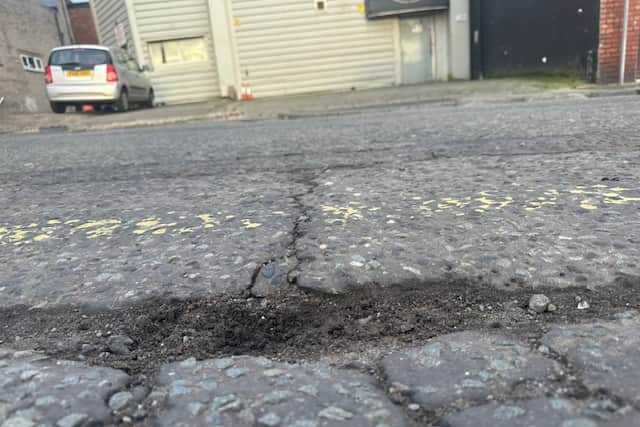

“They sent me a letter saying they have repaired the road but do not accept liability.
“But it was the reason they gave that really shocked me,” said Rebecca.
Advertisement
Hide AdAdvertisement
Hide Ad“A fact of life”, say Council
“They told me “this is a less than perfect world” and suggested potholes should be accepted as ‘a fact of life’”, said Rebecca, referring to a legal case 32 years ago which the Council quoted in its defence.
(The Council was referencing the Mills –v- Barnsley MBC Court of Appeals case from 1992 which set the precedent for Councils dealing with subsequent claims regarding potholes).
“I was horrified,” said Rebecca. “In what world is this deemed acceptable!?”
Three months after reporting the incident, an officer for Lancashire County Council got back in touch with Rebecca, denying liability and explaining that such potholes are “must be expected”.
Advertisement
Hide AdAdvertisement
Hide Ad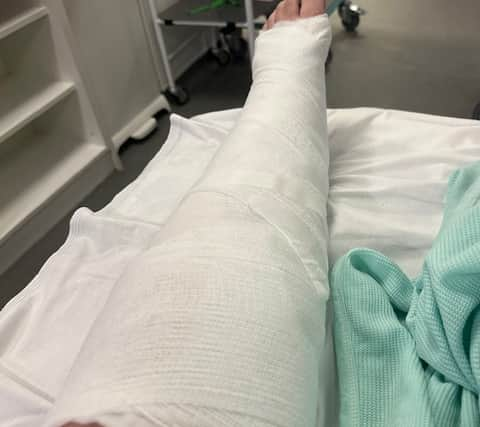

Referring to the 1992 case, the Council wrote to Rebecca explaining that the legal precedent defined her pothole as “the sort of minor defect which members of the public must expect”.
Again referencing the decades-old test case, the Council quoted the judicial position that certain ‘minor’ potholes (under 40mm) “must simply be regarded as a fact of life”.
The Council said: “We write to advise you that the circumstances surrounding your accident have now been investigated and regrettably we are unable to accept liability.
“It is denied that the condition of the highway was foreseeably dangerous to pedestrians.
Advertisement
Hide AdAdvertisement
Hide Ad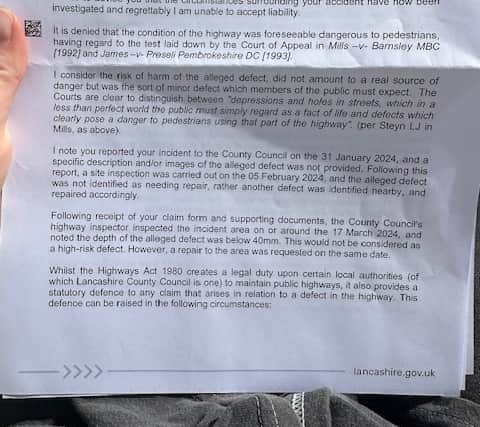

“We consider the risk of harm of the alleged defect did not amount to a real source of danger but was the sort of minor defect which members of the public must expect.”
It added: “The Courts are clear to distinguish between “depressions and holes in streets, which in a less than perfect world the public must simply regard as a fact of life, and defects which clearly pose a danger to pedestrians using that part of the highway.”
The letter went on to explain that the pothole was investigated but was not considered a high-risk defect. It has since been repaired, added the Council.
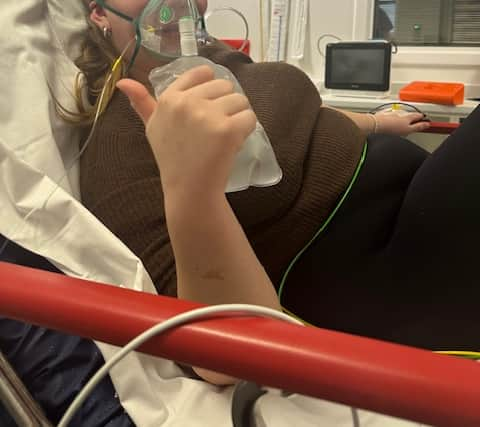

Council explains decision to the Post
A spokesperson for Lancashire County Council told the Post: “Keeping our roads safe is one of our highest priorities and we have a robust inspection regime in place to identify and repair any safety issues on our roads before they become a risk.
Advertisement
Hide AdAdvertisement
Hide Ad“This allows us to defend against many legal claims by showing that we take reasonable steps to ensure our roads are safe.
"In this case an inspection carried out just over a month earlier on December 11 had not identified any defects at this location, and a further inspection carried out on February 5 after receiving the claim found no relevant defects.
"The statutory defence provided by the Highways Act 1980 recognises that councils cannot be expected to ensure all roads are free defects at all times, and can defend against claims if they have taken reasonable steps to inspect roads, and make any repairs which may be needed."
Comment Guidelines
National World encourages reader discussion on our stories. User feedback, insights and back-and-forth exchanges add a rich layer of context to reporting. Please review our Community Guidelines before commenting.